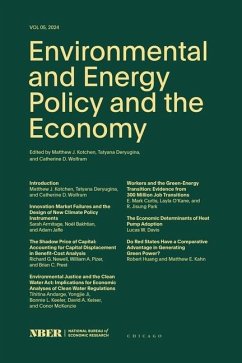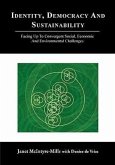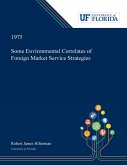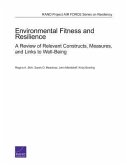Rigorous, careful, and nonpartisan research with a high policy impact on environmental and energy economics. Environmental and Energy Policy and the Economy focuses on the effective and efficient management of environmental and energy challenges. Research papers offer new evidence on the intended and unintended consequences, the market and nonmarket effects, and the incentive and distributional impacts of policy initiatives and market developments. This volume presents six new papers on environmental and energy economics and policy. Sarah Armitage, Noël Bakhtian, and Adam Jaffe review the literature on innovation market failures with an eye towards developing insights on the implementation of such policies in the climate and energy context. Richard Newell, William Pizer, and Brian Prest discuss alternative ways of accounting for capital displacement in benefit-cost analysis. Tihitina Andarge, Yongjie Ji, Bonnie Keeler, David Keiser, and Conor McKenzie provide new estimates of the distribution of environmental benefits and burdens of the Clean Water Act. E. Mark Curtis, Layla O'Kane, and Jisung Park examine the employment transitions into and out of sectors most likely affected by decarbonization. Lucas Davis provides a detailed analysis of heat pump adoption in the United States, showing that it may be one of the few energy-efficiency technologies for which subsidy take-up does not favor high-income households. Finally, Robert Huang and Matthew Kahn contribute to the political economy of U.S. energy policy, showing that many Republican-leaning states have a comparative advantage at generating some types of green power.








